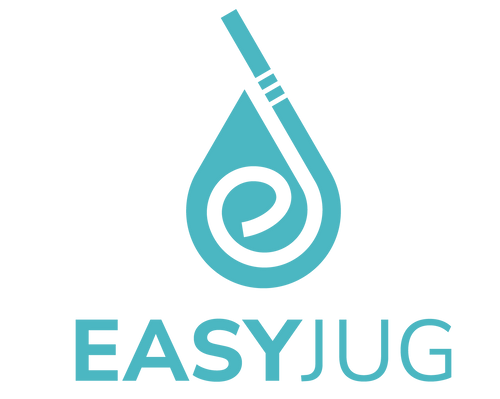Navigating the postpartum period is a unique journey filled with many changes and challenges. One question that often arises during this time is, "Could I be pregnant again?" Understanding postpartum pregnancy tests is crucial for new mothers to ensure their health and well-being.
What is a Postpartum Pregnancy Test?
A postpartum pregnancy test detects the pregnancy hormone, human chorionic gonadotropin (hCG), in your body. This hormone is produced when a fertilized egg attaches to the lining of the uterus. There are two main types of pregnancy tests: a urine pregnancy test and blood pregnancy tests. At-home pregnancy tests, often available in grocery stores, can provide quick results by detecting hCG levels in your urine stream.
Why Take a Postpartum Pregnancy Test?
After giving birth, your menstrual cycle can be irregular, making it challenging to determine if you're pregnant again. Symptoms of pregnancy, such as nausea or fatigue, might be confused with postpartum recovery symptoms. Taking a pregnancy test can help clarify any doubts.
When to Take a Postpartum Pregnancy Test
The best time to take a pregnancy test is typically the first day of a missed period. However, in the postpartum period, it can be tricky due to irregular periods. For the most accurate results, consider the following:
- Timing of ovulation: Understanding your ovulation cycle can help you determine the best time to test.
- Type of test: Digital tests can be more straightforward to read compared to test strips.
- Urine test: Use the first urine of the day for the highest concentration of hCG.
- Expiration date: Ensure the test kit is not expired for accurate results.

Interpreting Your Test Results
- Positive Test Result: A positive result indicates the presence of hCG and likely pregnancy. Follow up with your healthcare provider to confirm with a blood sample and discuss next steps.
- Negative Test Result: If you get a negative result but still suspect pregnancy, consider retesting in a few days. False-negative results can occur if the test is taken too early or if there isn't enough hCG in the urine.
- False Positive Pregnancy Test Result: Although rare, a false positive can occur due to factors like certain medications, medical conditions, or an evaporation line on the test.
Factors Affecting Pregnancy Test Accuracy
Several factors can impact the accuracy of a pregnancy test:
- Fertility Treatments: Certain fertility drugs contain hCG, which can lead to false positives.
- Medical Conditions: Conditions like kidney disease or urinary tract infections can affect test results.
- Postpartum Changes: Hormonal fluctuations and the timing of the first postpartum period can influence test accuracy.
Seeking Professional Guidance
If you're uncertain about your test results, it's a good idea to consult your health care provider. They can perform a blood pregnancy test for more precise results and discuss any concerns you may have. Regular postpartum checkups are essential to monitor your health and address any questions about fertility, birth control, or potential pregnancy.

Risk Factors of Getting Pregnant During Postpartum
Understanding the potential risks associated with pregnancy during the postpartum period is crucial for new mothers. Here’s a comprehensive look at the factors that might increase the likelihood of miscarriage or other complications:
Miscarriage and Risk Factors
1. Miscarriage Risk: Pregnant women in the postpartum period may face a higher risk of miscarriage. Factors such as hormonal imbalances and physical recovery from the previous pregnancy can contribute to this increased risk.
2. Chemical Pregnancy:A chemical pregnancy is an early miscarriage that occurs shortly after implantation. It can result in a faint line on a pregnancy test. If you suspect a chemical pregnancy, consult your healthcare provider for further evaluation.
3. Gestational Diabetes and High Blood Pressure: Conditions like gestational diabetes and high blood pressure during a previous pregnancy can elevate the risk of complications in subsequent pregnancies. These conditions require careful monitoring and management.
4. Physical Exam and Postpartum Checkup: Regular postpartum checkups and physical exams are essential to monitor a woman's health and address any concerns about potential pregnancy.

Precautions and Professional Guidance
1. Unprotected Sex and Contraceptive Methods: Engaging in unprotected sex during the postpartum period increases the chance of pregnancy. Discussing contraceptive methods with your healthcare provider during your postpartum checkup can help you choose the best option for your situation.
2. Prenatal Vitamins and Health Monitoring: Taking prenatal vitamins and maintaining regular health checkups can prepare your body for a healthy pregnancy. Your healthcare provider can advise you on the appropriate vitamins and any additional steps to ensure a smooth pregnancy journey.
3. Addressing Health Conditions: Conditions like urinary tract infections, high blood pressure, and other medical issues should be managed carefully under the guidance of your healthcare provider to reduce the risk of complications in future pregnancies.
EasyJug: Your Essential Companion for Hydration During Your Second Pregnancy
Embarking on a second pregnancy while managing the demands of breastfeeding can be challenging, but staying hydrated shouldn’t be. EasyJug is designed to make hydration simple and efficient, especially for busy mothers like you. Here’s why EasyJug is the perfect water bottle for your second pregnancy:
Superior Design for Ease and Comfort
1. Ergonomic and User-Friendly: EasyJug's ergonomic design ensures that it is comfortable to hold, even when you're dealing with the physical changes and demands of pregnancy.
2. One-Handed Operation: Breastfeeding often requires you to have one hand free. EasyJug's one-handed operation allows you to stay hydrated without interrupting your baby's feeding time. The long straw can be easily managed, making it simple to take a sip hands free.
Health Benefits for Pregnant and Breastfeeding Mothers
1. Encourages Adequate Hydration: Staying hydrated is crucial for pregnant women, especially when breastfeeding. EasyJug holds a large capacity of water, ensuring you have enough to stay hydrated throughout the day without constant refills. Proper hydration helps maintain amniotic fluid levels, supports increased blood volume, and aids in the production of breast milk.
2. Promotes Healthy Habits: Using EasyJug encourages regular water intake, which is essential for managing common pregnancy symptoms like constipation, swelling, and fatigue. Additionally, staying well-hydrated can help regulate your body temperature and support overall well-being.
Perfect for Postpartum and Beyond
1. Durable and Safe Materials: EasyJug is made from BPA-free, high-quality materials, ensuring it is safe for both you and your baby. The durable design means it will last through your pregnancy and beyond, making it a worthwhile investment for your health.
2. Convenient Measurement Markings: EasyJug features measurement markings to help you track your daily water intake. This is particularly useful for breastfeeding mothers who need to ensure they are drinking enough water to support milk production.
Community and Support
1. Designed with Mothers in Mind: At EasyJug, we understand the unique needs of pregnant and breastfeeding mothers. Our water bottle is designed to cater specifically to these needs, making your hydration journey easier and more enjoyable.
2. Join a Supportive Community: When you choose EasyJug, you’re not just getting a water bottle; you’re joining a community of mothers who prioritize health and well-being. Our brand is dedicated to fostering a supportive environment where you can share experiences, tips, and encouragement with other moms.
Conclusion
Navigating the postpartum period is a unique journey filled with many changes and challenges. One question that often arises during this time is, "Could I be pregnant again?" Understanding postpartum pregnancy tests is crucial for new mothers to ensure their health and well-being. From knowing when and how to take a postpartum pregnancy test to interpreting the results accurately and recognizing the risk factors involved in a subsequent pregnancy, being informed is key to managing this important aspect of your postpartum health. And while you're taking care of your body and preparing for the possibility of another pregnancy, don't forget to stay hydrated with EasyJug. Designed specifically for busy, breastfeeding mothers, EasyJug makes it simple to maintain your hydration levels, supporting both your health and your baby's well-being. Join our supportive community and let EasyJug be your trusted companion on this incredible journey.





